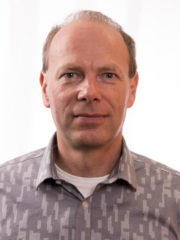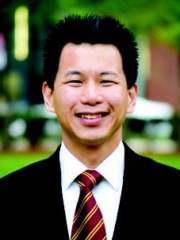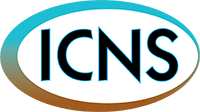The 2022 ICNS Technical Program includes an exciting collection of technical papers covering a wide array of aviation-related topics grouped in to the six technical tracks described below. ICNS received abstracts from authors in 16 countries, representing government organizations, industry, and academia.
These are exciting times! We look forward to your participation and encourage your active engagement throughout the conference.
Technical Program Chairs
- Erik Theunissen, Netherlands Defence Academy
- Dr. Jonathan Lee, U.S. DOT, Volpe Center
Email Technical Chairs
Track Overview and Summaries
Track 1 – Traffic Management
Co-Chairs
Bernd Korn, German Aerospace Center (DLR)
Ralf Mayer, MITRE
In this track, sessions will address developments in Air Traffic Management (ATM), UAS Traffic Management (UTM) and Space Traffic Management (STM). Topics such as Upper Class E Traffic Management, the impact of airspace restrictions on critical UAM trip-related parameters and autonomous and cooperative trajectory planning for Free Route Airspace (FRA) operation are part of this track.
Track 2 – Artificial Intelligence and Machine Learning
Co-Chairs
Rainer Koelle, Eurocontrol
Matthew Moser, Boeing
In this track, sessions will address developments in Artificial Intelligence and Machine Learning. Topics include robustness of ML against adversarial attacks, technological and regulatory challenges associated with the use of AI/ML, certifiable architectures based on Artificial Intelligence (AI) and the development of ML models to detect anomalous patterns.
Track 3 – Operational Efficiency
Co-Chairs
Rafael Apaza, NASA Glenn Research Center
Dr.Dongsong Zeng, MITRE
In this track, sessions will address developments in Operational Efficiency (Airspace, Airport, Airspace Users, Airplane and Air Traffic Systems) and Contingency Management. Topics include resilience measurement in the ATM context, capacity estimation in the TMA and congestion prediction.
Track 4 – Communications and Cybersecurity
Chairs
Kevin Clark, Volpe
In this track, sessions will address developments in data- and voice Communications and cybersecurity. Topic include encryption of ADS-B, L-band Digital Aeronautical Communication System (LDACS) security and utilization of 5G networks.
Track 5 – Surveillance and Spectrum Management
Co-Chairs
Brent Phillips, Federal Aviation Administration (FAA)
Michael Schnell, German Aerospace Center (DLR)
In this track, sessions will address developments in Surveillance Systems, Situational Awareness and spectrum management. Topics include autonomous spectrum allocation and improved use of DME channels to provide more room in the L-band.
Track 6 – Special Topics
Co-Chairs
Paul Prisaznuk, SAE/ITC
Fred Wieland, Mosaic ATM
In this track, sessions will address developments in Aviation Sustainability (Environment, Economy and Society), Unmanned Aircraft Systems (UAS) operating Beyond Visual Line Of Sight (BVLOS) and sub-system performance estimation through drone-based flight testing.
Technical Program Chair Bios
Prof.dr.ir. Erik Theunissen
Prof. Theunissen has been active in the field of avionics for over 30 years. He is a member of the AIAA/IEEE Digital Avionics Technical Committee and RTCA Special Committee 228. Since 2003 he is a professor (part-time) at the Netherlands Defence Academy (NLDA). The company ISD, which he founded in 1988, has designed synthetic vision systems for Rockwell Collins that have been flight-tested in the Boeing 727 from the FAA, the Boeing 737-900 Technology Demonstrator, the NASA Boeing 757 ARIES, and several other test aircraft). Since 2008 he has been involved in the design and evaluation of Detect and Avoid systems for unmanned aircraft, and since 2010 his company ISD is involved in the design of the GA-ASI Conflict Prediction and Display System (CPDS). Between 2014 and 2018 he supported flight testing of CPDS, a prototype self-separation system, at NASA Armstrong. For his research, he has received over 20 international awards among which two times the MITRE-sponsored David Lubkowski Award for Best of Conference.

Dr. Jonathan Lee, U.S. DOT, Volpe Center
Dr. Jonathan Lee has 20 years of experience in the aviation field. He is currently the senior project lead in Air Traffic Control Concepts and Systems. Prior to that, he was the chief of the Aircraft Wake and Weather Division. Dr. Lee has worked on projects sponsored by the Federal Aviation Administration (FAA) and the National Aeronautics and Space Administration (NASA). His areas of research include air traffic management (ATM) concepts and systems research and development; human-system integration; National Airspace System (NAS) modeling, simulation, and optimization; and performance evaluation and assessment of the NAS. Some of the projects he has been involved in include FAA Tailored Arrivals, FAA Remote Tower, the NASA NextGen ATM-Airportal, NASA Virtual Airspace Modeling and Simulation, and the NASA Detroit Deicing Decision Support Tool. He holds a patent on modeling deicing process on airport surface.

